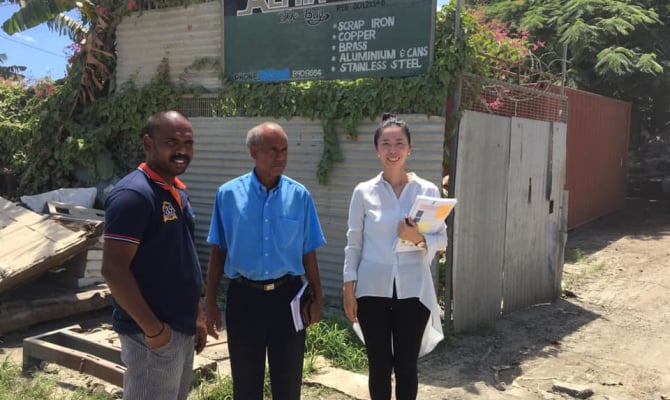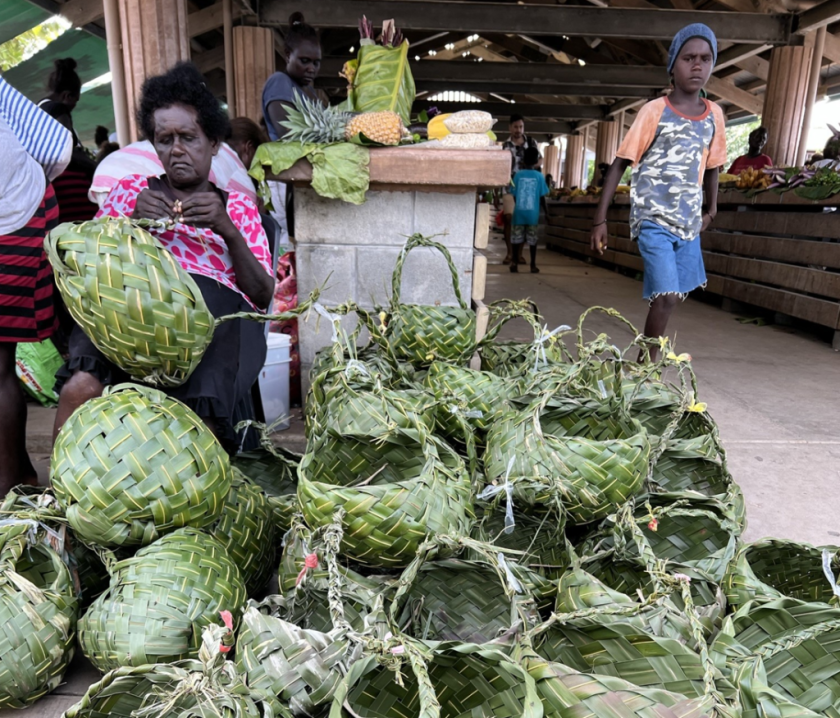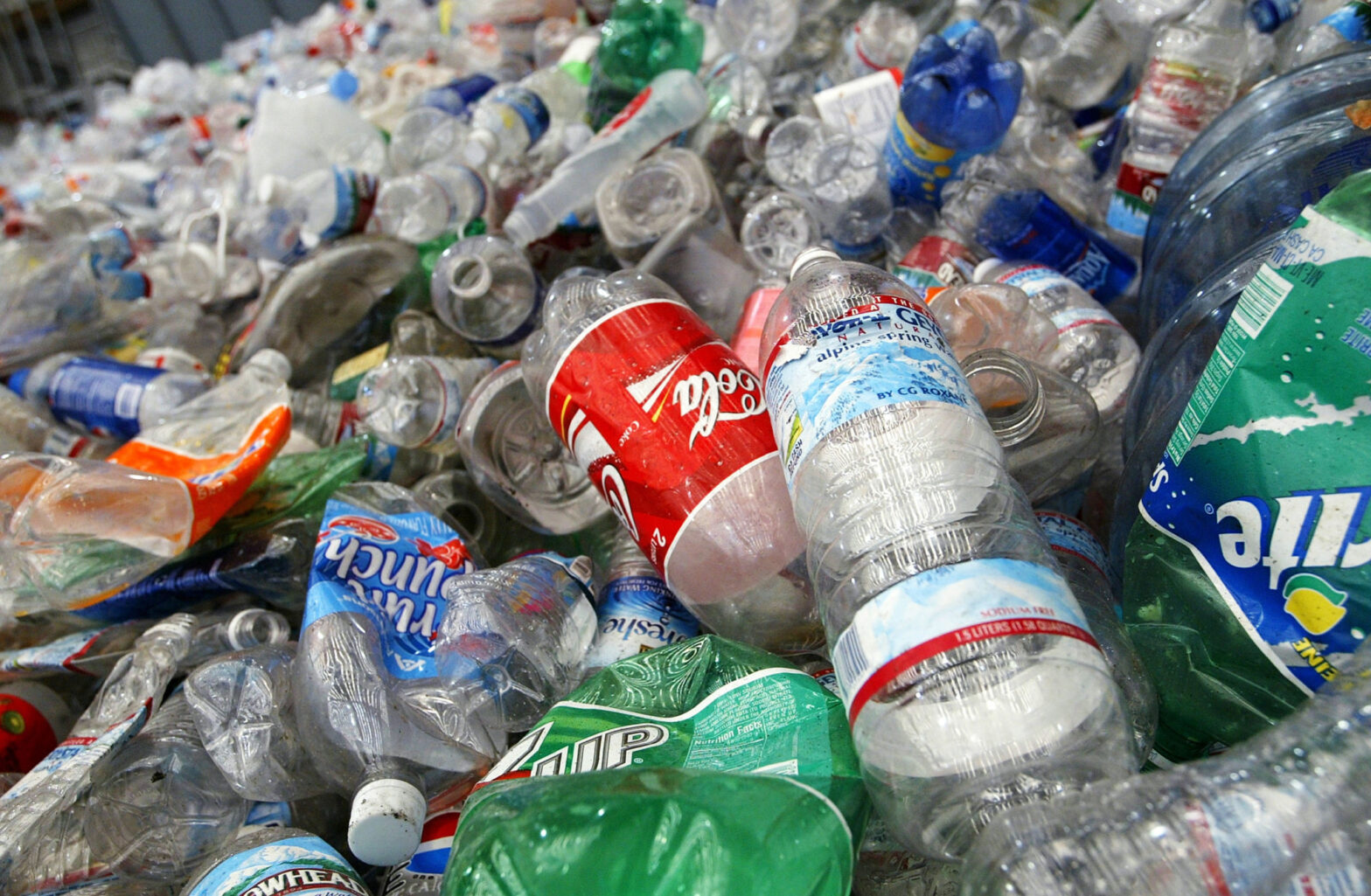Gizo community prefer coconut baskets to discourage the single-use of plastic.
The use of weaved coconut baskets at the Western provincial capital main market has been popular for over four decades now and it is gaining popularity at the Gizo market.
Each day visitors and customers would buy themselves a basket before doing their shopping at the market.
The use of coconut baskets is to discourage people from using plastic.
Many customers now prefer using local weaved baskets made of coconut leaves to store their fruits and vegetables.
It is one of the initiatives endorsed by the former Premier Wayne Maepio way back in 2018.
The use of local baskets was used many years ago by when the then Maepio-led government came into power, it discourages the use of plastic. Thus, the use of baskets gains popularity.
This initiative also allowed local women to have the opportunity to weave baskets to earn an income.
Mary Sambe is one of the women from West Gizo who usually weaves these bags and sell them at the Gizo market.
Ms. Sambe, who comes from Malaita, is married to a man from Western Province and they live at Vorivori village, West Gizo.
She said weaving green coconut baskets is daily practice by many women from Paelonge to Saeragi in West Gizo.
In 2018 women from these areas started to make use of the opportunity when the use of plastic was banned at the Gizo market.
The current government under the leadership of Premier David Gina has also encouraged the ban of plastic use at the market.
“From that time we started weaving coconut leaves into baskets, other crafts and recreational stuff out of the coconut leaves to sell,’’ said Ms. Sambe.
She explained she would hire some of the boys in the village to climb up the coconut tree and cut down the coconut leaves.
The boys also earn between US$1.25 to US$3.74 (Solomon $10 to $30) for climbing coconut trees.
“Most of the boys did not hesitate to climb because they also earn their extra money,” she said.
Ms Samb since moving over to West Gizo, she was able to learn from other women in the village how to weave local baskets.
On a day she can weave between 20 to 30 bags.
After weaving the baskets, she would use public transport to bring her weaved baskets and other local products to sell at the Gizo market.
She said there are other expenses such as truck fare, freight, market fee, storage fee to consider when selling her produce and baskets.
She added sales of between 20 to 30 bags can earn between US $12.46 to US $24.92 (Solomon $100 to 200 dollars) that will help to buy food and other needs.
“And it is big money to sell those baskets,” she said.
Her bags cost US $0.62 to US $0.75 (Solomon 5 dollars to $6). The bigger bags can cost up to US $1.25 (10 Solomon dollars).
She has a kid and the income from her sales help to support the family.
She said using coconut woven baskets is much better than the single-use of plastic to reduce rubbish and its much stronger.
She said coconut woven baskets can store more fruits, crops, vegetables, and fish.
“Single-use of plastic also has its disadvantage as it can contribute to damaging the environment both on land and sea.”
Meanwhile, many have questioned whether it’s good to use the coconut weave baskets because stripping off the coconut fronds each day to make baskets can also harm a coconut tree itself.
A member of the public in Gizo said it is still not eco-friendly.
‘’Let’s instead search and use the coconut waste, husk, and skin of the coconut fruit for recycling and producing bags,” the concerned member from the public in Gizo said.



